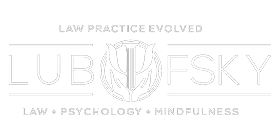Within a wide swath of civil litigation can be found a common denominator: The tendency of people in contemporary American society to sidestep responsibility for their own happiness and well-being, instead looking toward external factors to blame for undesirable outcomes or consequences.
Almost by definition, our predominant adversarial model of civil litigation encourages, cultivates, and solidifies blame. For example, in filing an initial complaint to initiate a lawsuit, a plaintiff is basically required by procedural rules to allege facts that establish on their face what a defendant or defendants did wrong. The plaintiff is then required to set forth a request for relief stating how these alleged improper or wrongful acts caused harm or loss. Nowhere at this initial pleading stage would a plaintiff acknowledge any affirmative role that may have contributed to the harm of which he or she is complaining.
It is only at a more advanced stage of pleading that an adverse party may file a “Request for Admissions,” which would prompt a party to acknowledge that his/her/its actions or inactions may have contributed to the problem at hand.
So it often seems in a more broad societal context. We seem conditioned to focus on external factors to explain our problems (and much of our happiness). Many would maintain, however, that such thought-driven notions that attribute happiness or lack thereof to external factors are largely delusional. Such a misguided orientation may go far in explaining why litigation “victories” resulting from the adversarial process seldom produce an enduring sense that the conflict has been resolved in any sort of optimal fashion.
In contrast, holistic law and mediation works to help dissolve defensiveness and entrenched conditioning to the point at which participants become better able to see through their misguided preconceptions. They are then better able to objectively assess their acts or omissions that may have contributed to the current conflict. At the same time, the cultivation of an empathic environment by the holistic lawyer or mediator facilitates this process as participants feel more understood and less judged for “mistakes” or “misunderstandings” that my have contributed to the conflict.
To learn more about how holistic law and mediation can facilitate optimal, sustainable conflict resolution, contact Holistic Lawyer and Mediator Michael Lubofsky at (415) 508-6263, or visit http://www.Holistic-Lawyer.com.
